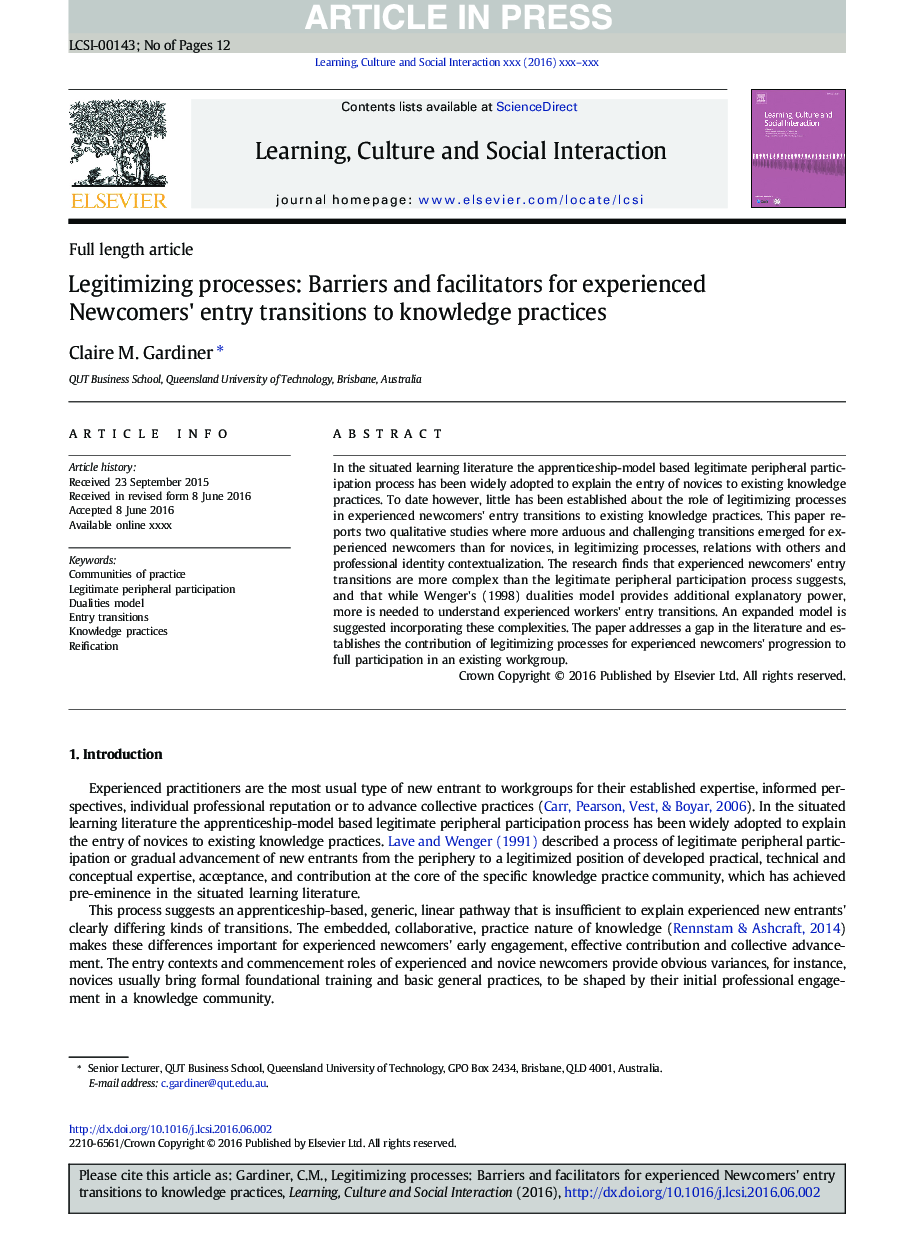| Article ID | Journal | Published Year | Pages | File Type |
|---|---|---|---|---|
| 4939899 | Learning, Culture and Social Interaction | 2016 | 12 Pages |
Abstract
In the situated learning literature the apprenticeship-model based legitimate peripheral participation process has been widely adopted to explain the entry of novices to existing knowledge practices. To date however, little has been established about the role of legitimizing processes in experienced newcomers' entry transitions to existing knowledge practices. This paper reports two qualitative studies where more arduous and challenging transitions emerged for experienced newcomers than for novices, in legitimizing processes, relations with others and professional identity contextualization. The research finds that experienced newcomers' entry transitions are more complex than the legitimate peripheral participation process suggests, and that while Wenger's (1998) dualities model provides additional explanatory power, more is needed to understand experienced workers' entry transitions. An expanded model is suggested incorporating these complexities. The paper addresses a gap in the literature and establishes the contribution of legitimizing processes for experienced newcomers' progression to full participation in an existing workgroup.
Related Topics
Social Sciences and Humanities
Psychology
Developmental and Educational Psychology
Authors
Claire M. Gardiner,
